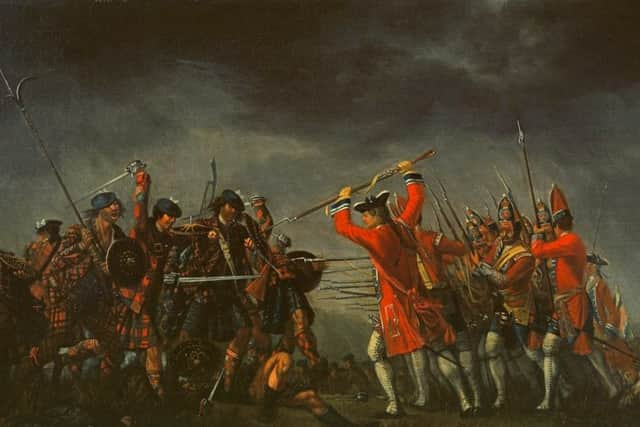What if the Jacobites had won at the Battle of Culloden?
But what if they had triumphed at Culloden - which took place 273 years ago today - and indeed gone on to claim themselves as victors of the 1745 rising?
History is uncomfortable dealing with the hypothetical but how some thinkers and influencers of the day viewed a potential Jacobite triumph is known.


Advertisement
Hide AdAdvertisement
Hide AdBenjamin Franklin, one of the founding fathers of the United States who helped draft the Declaration of Independence, feared that conversion to Catholicism would become compulsory in such circumstances.
Historian Professor Murray Pittock, in his book Culloden: Great Battles, said Franklin’s view was “if laughable, perhaps not untypical”.
Meanwhile, clergyman and scholar Thomas Prince, in a sermon at Boston on August 14 1746, suggested that Prince Charles Edward Stuart would have restored Gibraltar, Menorca and perhaps Jamaica to Spanish rule and probably Cape Breton, Nova Scotia and part of Newfoundland to France.
Prince considered that it “seems highly probably that even all the British Americas would either by gift, sale or conquest be soon subjected to the power of France” and “the whole British Empire would be subservient to the Bourbons.”
Had the Jacobites won at Culloden, the British Government would simply “find another army” and fight on, Prof Pittock said.
Royle suggested that, had the Jacobites gone on to win the rising, it would have been part of a wider struggle for power across Europe given it was effectively a ‘franchise’ of the Austrian Wars of Succession.
Britain and her allies fought against the combined forces of France and Spain – both Catholic countries – and the threat of French invasion was rightly feared.
Royle said it was not simply a religious war, in which Protestant fought Catholic given that Britain’s principal ally, Hapsburg Austria, was a Catholic country.
Advertisement
Hide AdAdvertisement
Hide AdBut as the fighting spread into the Caribbean and North America it gave British foreign policy a religious dimension by stimulating anti-Catholic sentiments, he added.
Royle added: “If the Jacobites had won, they would have done it for the French. France would then have to invade England and unseat the Hanoverians to allow for a French Royal Family.”
Royle said the Jacobites were always going to lose at Culloden.
He added: “I don’t take anything away from the bravery of the men but they were in no fit position to take part in modern battle.
“Cumberland, on the other had and knew exactly how to defeat an insurgency and he set aside it with will. It was all over in a couple of hours.”
As we know, the Jacobite defeat let to the often brutal violent dismantling of the Highland way of life and the destruction of the clan system. Emigration and clearance of people from the land are part of the post-Culloden story.
Meanwhile, Cumberland was described as a ‘hero god’ in learned London circles, according to Prof Pittock with the army general acquiring a ‘god-like status’ in the American colonies as the guarantor of Protestant Liberties.
Cumberland was given an extra £25,000 a year pay following the victory at Culloden although questions were soon asked about why Jacobite prisoners so rarely suffered wounds. The answer was that wounded Jacobite soldiers were simply killed as they lay in the field.
Advertisement
Hide AdAdvertisement
Hide AdCumberland went on to collect an honorary degree from Glasgow University and given the Freedom of the City.
He was also made a freeman of the Butcher’s Company in London. The name ‘The Butcher’ stuck with the Duke forevermore.
